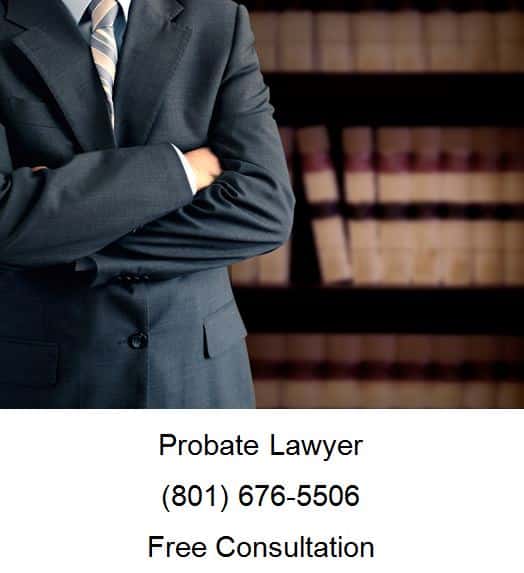Getting Probate
One aspect of estate planning is the areas of trusts. Because I’m a probate lawyer, I’m often asked about trusts and if revocable and irrevocable is the same thing. These are questions I get all the time. So let’s clear this all up. First, please watch the short video below in which I explain what the heck Irrevocable really means.
Now that you have the idea of what Irrevocable means, how does that apply to a Trust. Basically an irrevocable Trust is a Trust in which you have made the decision not to have the capacity to REVOKE it. This means that it is permanent and that whatever you set forth in the Declaration of Trust is the way it will stay.
When should I use an Irrevocable Trust?
I’d like to point out that this type of Trust is ideal for things like Gifts, which you would like excluded from your estate, and most importantly for this discussion ASSET PROTECTION. In fact, it is the nature of the irrevocability of the Trust which gives it such powerful asset protection features. Basically, since you have not reserved the right to revoke the Trust, the court must consider the Trust document, including all of the protective provisions.
Do I lose control in an Irrevocable Trust?
Does this mean that if you create an irrevocable trust you have no influence whatsoever? Not at all. In fact, you can (and should) retain quite a bit of influence over the Trust. This is particularly true with an Offshore Asset Protection Trust, in which you are also the primary beneficiary. The key to that is that there will be 2 sets of rules about when and how you, as the Settlor, can influence the Trust. This gets into the skillful drafting of a good APT, and I recommend you see the section on the Asset Protection Trust for more details.
The Bottom Line
The bottom line is that the skillful use of an Irrevocable Trust is both desirable and useful in many cases. And if Asset Protection is your goal, then it is essential, and you don’t have to lose control to do it!
Control of Assets Held in an Offshore Trust
One major concern for people considering offshore trusts as a protection mechanism is control. Control of the assets. Giving one’s assets to a trustee who is expressly prevented from returning those assets by the express language of the governing trust documents can be scary, to say the least. The rub is that control over the assets must be ceded, or else a court can disregard the trust. This is not just an abstract concern but, rather, one that has resulted in actual losses for actual clients of other firms in reported cases involving foreign asset protection trusts. So control over assets must be surrendered in order to gain the full benefits of an offshore protection trust, but clients are hesitant to surrender control. How can we solve this problem?
Enter the Savvy Asset Protection Attorney
If a settlor retains control of trust assets, a U.S. court could simply order that settlor to make a distribution to her or himself, and such distribution would then be paid over to creditors. That is a nightmare scenario. So asset protection attorneys devised an incredible mechanism. The trust protector. In a broad theoretical sense, trustees “report” to trust protectors. Trust protectors have no control of the actual management of the trust or decision-making with respect to trust assets. Rather, the protector can hire and fire trustees, veto certain actions of the trustee, and otherwise make sure that the trustee is managing the trust in a manner acceptable to the settlor.
One obvious problem remains. If a trust protector is a U.S. resident domiciled in the United States and subject to the jurisdiction of domestic courts, what is there to stop a judge from order the trust protector to replace the current foreign trustee with a person subject to the court’s jurisdiction–a person like the settlor? Nothing.
There are a few ways that a smart asset protection attorney can deal with this problem. The first is to appoint a trust protector who is not subject to the jurisdiction of U.S. courts but who is a trusted friend or family member of the settlor. The second option is to give the trust protector only veto power over certain actions of the trustee. In other words, the trust documents can specify that the trust protector can veto the affirmative actions of the trustee, even though the protector does not have the ability to replace the trustee. In the event that a court requires the trust protector to exercise it’s powers, those powers will be of limited use in repatriating trust assets.
Use of Multiple Trustees
Another mechanism is the use of multiple trustees, some of whom will be domestic and at at least one of whom must reside in the jurisdiction of the trust. If a lawsuit is ever filed, of course, the domestic trustees will be required to resign. Only at that point, however, will the stigma of allowing a foreign trustee to control the settlor’s assets come into play, and hopefully by that time the foreign trustee (likely an institution with a very solid track record of asset management) will have earned the settlor’s trust.
Free Consultation with a Probate Lawyer
When you need help with estate administration, estate planning, probate or a trust, call Ascent Law for your free consultation (801) 676-5506. We want to help you.
8833 S. Redwood Road, Suite C
West Jordan, Utah
84088 United States
Telephone: (801) 676-5506



